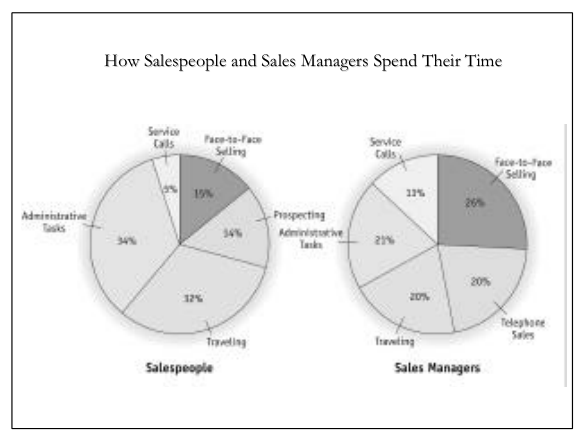Effective sales executives are well above average in initiative and personal drive. Realizing the sales executive’s potential, however, depends largely upon relations with top management. Sales executives should want to get ahead, for personal goals are as vital to them as the objectives they set for the sales department, but if they are to achieve these goals, not only must they know-where they are going, but top management must be kept abreast of their progress.
Effective sales executives plan and implement their own self- development programs, and setting definite career goals is essential. They harmonize their own goals with those of the organization, this being important for maximum progress of individual and company alike. Whenever the sales executive and the company cease to move toward mutually compatible goals, friction causes both to fall short. When this happens, either the two sets of goals must be reconciled, or the executive should leave the firm. Sometimes, sales executives unilaterally reconcile such goal conflicts (usually by adjusting personal goals to fit those of the organization). More often, they reconcile them through interaction with company top management.
Effective sales executives are highly qualified as problem solvers and decision makers.. Consequently, sales executives guard against taking too many of their problems to top management. Asking for help in deciding problems is asking for closer supervision (and less authority). Competent sales executives do not require a close watch over their activities.
Effective sales executives keep top management informed on important decisions and the department’s plans and accomplishments. They transmit all ordinary reports promptly, and special reports when appropriate. They exercise restraint in reporting their own activities, but they see that their superiors have all the information needed to evaluate their personal effectiveness. Their re-ports ensure that top management knows in broad outline the problems encountered in selling _he company’s products, the ways they are handled, and the results accomplished.
Effective sales executives pay attention to the manner in which they communicate with top management. They do not hesitate to give their superiors the benefit of their thinking, but, unless matters of high principle are involved, they are willing to modify preconceived ideas.
When the sales executive has a great idea, is absolutely sure of it; and top management is unconvinced, the sales executive must play the role of super-salesperson and “sell” to those with the authority to decide. When the facts do not speak for them-selves-when those in authority fail to grasp their full Significance the sales executive, like any competent executive, should bring to bear his or her full powers of persuasion.
Effective sales executives listen and learn. They keep a dated record of important conversations. They refrain from voluntarily discussing the personal competence of fellow executives. They avoid relaying rumors. They control their executive contacts, never missing scheduled engagements without reason. Sales executives following such rules of conduct experience little difficulty in winning top management’s confidence and respect.

According to the given data it is seen that largest portion of sales manager’s time is spend in selling. This finding dispels the common misconception that a sales manager sits behind the desk issuing orders. In reality a sales manager devote considerable time to field travel and to solving customer’s problems. In addition their calls are often designed to help train salespeople and to keep management informed about competitive conditions.

